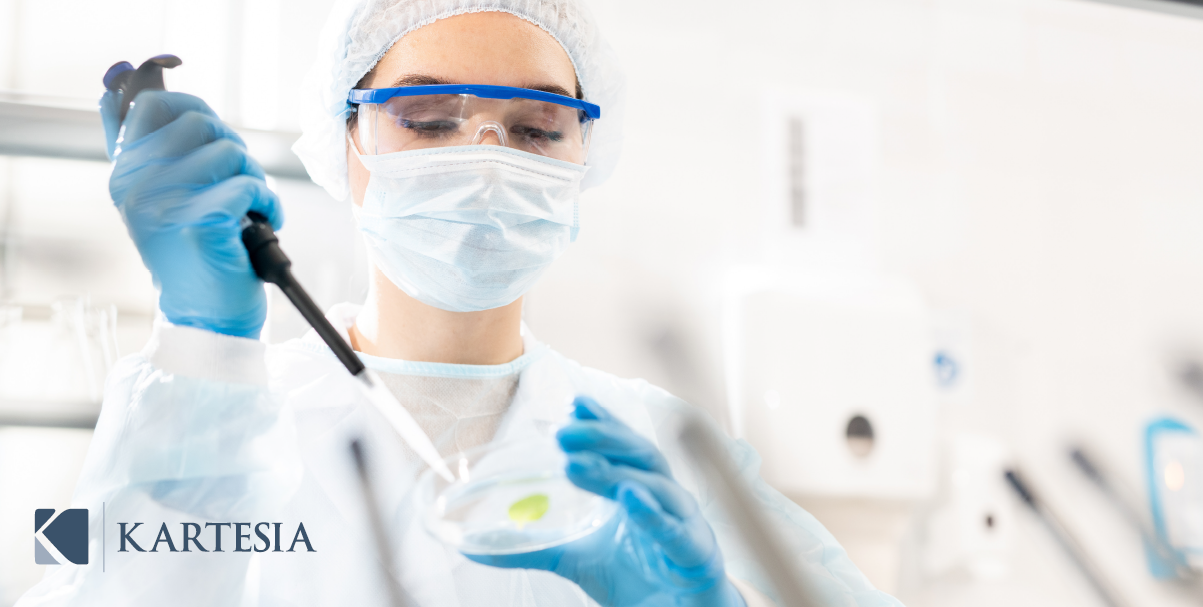ADL: A case study in effective restructuring
A recurrent question from investors in our fundraising meetings across strategies is how we manage underperforming or defaulting assets. Let’s face it: in the private credit asset class restructuring is an intrinsic part of the business and a reason why investors pay management fees. And ultimately, what sets apart fund managers.
Managing restructurings in a good fashion not only protects the initial investment of our Limited Partners but may also generate additional returns to the fund if the weakness is turned into a gain. Our utmost priority is to protect the downside by supporting the company and its shareholders, but if worse comes to worst and a takeover is required to protect the investment, we have the experience and the track record to execute. We take a 3-step approach.
The first step is to anticipate: we monitor investments in real-time and feed them through a scoring system to identify deviations versus the Kartesia Base Case, putting the focus on those assets that deviate negatively.
Restructuring negotiations are usually triggered after a covenant default or a liquidity need. By then we have completed our initial diagnosis, which comprises a revised assessment of trading, liquidity, security pack, and valuation, in order to: (1) confirm or adjust our initial investment thesis; (2) draw up our turnaround case in case required; and (3) set the strategy for the restructuring process.
The second step is execution: even if each restructuring is different, in all of them we apply some game theory, soft & hard power, and our best negotiation skills. The 3 key questions that trigger a consensual or non-consensual takeover process such as a debt-to-equity swap are: (A) Is there a liquidity requirement? if yes: (B) Are the incumbent shareholders injecting liquidity? If no: (C) How is the benchmark of the current/potential valuation compared to the existing and new investments of Kartesia
After many years of experience dealing with complex restructurings, we have learned that the timing of enforcement is a fine balance between building the turnaround plan on the one hand and being agile on the other hand, as every additional week waiting for the cash injection increases the insolvency risk and may jeopardise the recovery.
The third step is to turn the asset around if needed, which is the most challenging step because it can be a period of abrupt changes and difficult decisions. Moreover, results need to be visible soon enough to show the inflection point that confirms the turnaround thesis.
At Kartesia we have built a unique set of skills and a strong track record to enhance the efficient delivery of the turnaround. The one in charge of the turnaround is either an external CRO with industry expertise, a turnaround advisor, or the Kartesia team as interim management. Our approach is pragmatic: we strive to maximise results while also using minimal resources.
In parallel to the turnaround, we design and hire the management team that will take the lead once the business has stabilised. It is important that this transition takes place as the teams need to adopt a growth mindset.
After that milestone, Kartesia continues supporting with the implementation of equity best practices, the relaunch of the equity story and eventually leading the sale process.
Given the growth in the portfolio and the specific know-how accumulated in restructuring and turnaround, Kartesia has decided to create a dedicated team called Value Enhancement, which will devote its time to complex situations across three of our strategies (KCO, KSO, KIF).
A good case study in this area is KCO IV portfolio company ADL Biopharma, a Spanish-based CDMO specialised in bio-based ingredients for cosmetics, nutrition, flavours & fragrances. It has the largest precision fermentation capacity in Southern Europe, with a headcount in excess of 300.
The original deal dated August 2019 consisted of a unitranche of €25m with an equity kicker attached. The investment thesis was based on (1) scarce installed capacity and (2) strong tailwinds in bio-based ingredients.
An underperforming management and unprofessional governance, coupled with the Covid impact in early 2020, caused deterioration in the financial performance. By mid-2020 the company was in urgent need of additional liquidity.
Kartesia conducted a comprehensive diagnosis, including a full scope on-site DD and discussions with all stakeholders to understand the situation and prepare the turnaround plan.
We negotiated a semi-consensual takeover and injected new money to fund the negative cash flow and the turnaround costs. The Kartesia team acting as interim management renegotiated key contracts with clients and suppliers, laid-off 25% of the headcount, and closed unprofitable production units.
In the meantime, we progressively hired a new management team who fully took control 6 months after the takeover by Kartesia and whom we supported in the construction of the new business plan and the re-launch of the equity story.
Since Kartesia took control in October 2020 until the exit the following milestones were achieved:
- Volumes increased by 75%. Turnover doubled.
- EBITDA improved from -6m€ to +6m€.
- ADL Biopharma launched a new business unit.
- Invested €14m in additional capacity and efficiency.
- Electricity transitioned to 100% renewable sources (PPA).
- Headcount exceeded pre-layoff level at >300.
- Implementation of an efficiency program reduced energy consumption per hour of fermentation by 20%.
The exit process started in mid-2022 with an unsolicited bid from a competitor. Kartesia was able to attract interest from 2 other trade buyers along the way to build credible competition. After a cumbersome due diligence process, in May 2023 the German-based chemical group Wacker Chemie AG acquired 100% of ADL Biopharma.

